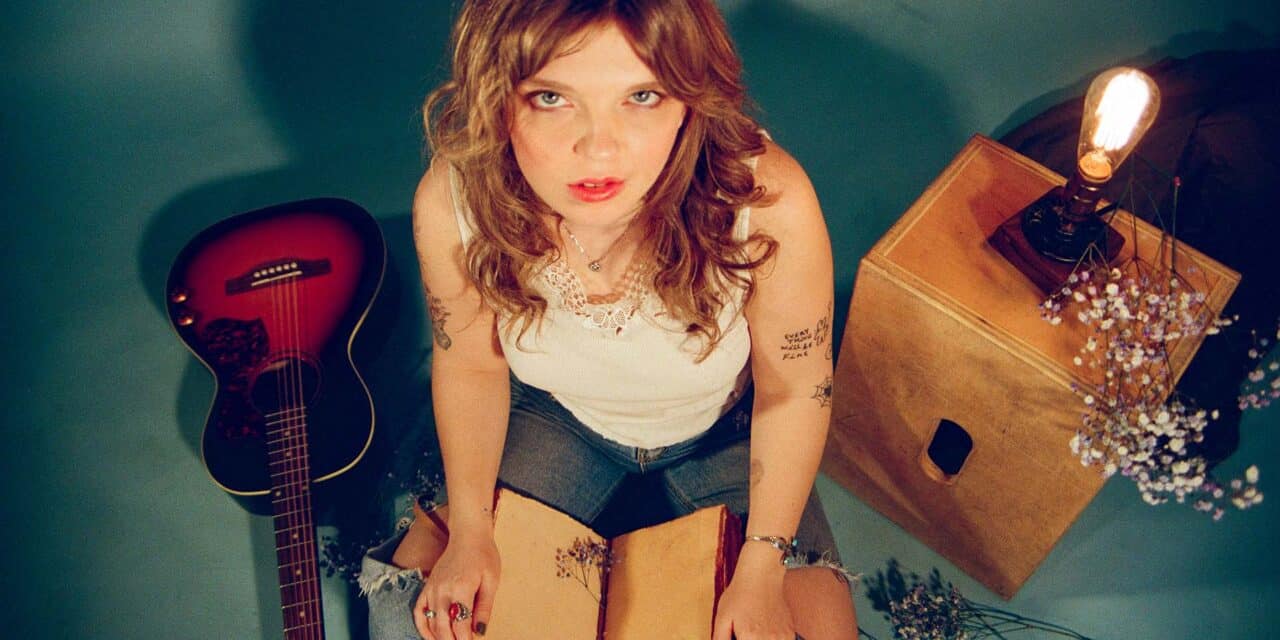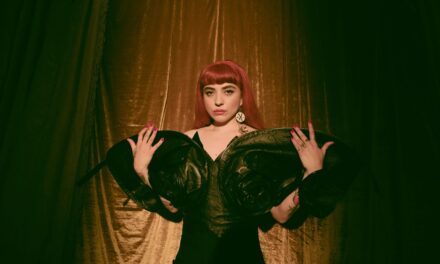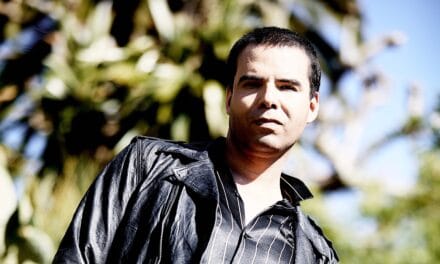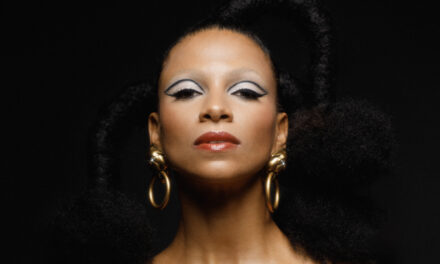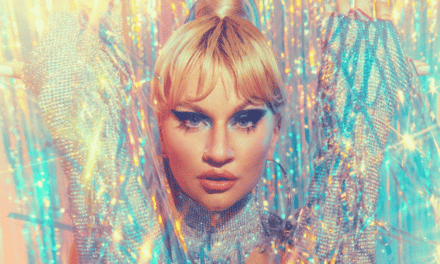If a life can be told in songs, then Maddisun’s new album The Pages is a diary written in melody and memory. Out October 2nd, the Canadian singer-songwriter’s third full-length record isn’t just a collection of tracks — it’s an emotional document, equal parts confession and celebration.
Following two lead singles — the luminous title track “The Pages” and the warm, wistful “Pumpkin Pie” — Maddisun invites listeners to leaf through the chapters of her life. Structured like a personal journal set to music, the 12-track album balances introspection with sonic breadth, blending vintage folk, rock ‘n’ roll, Southern rock, and Americana into something deeply timeless yet unmistakably her own.
“I wanted The Pages to feel like opening an intimate journal,” Maddisun says. “Each song is a page from my story — weaving together love, loss, growth, resilience, connection, and ultimately self-discovery. Being real and raw through my life language of music allowed me to capture moments and give them lasting artistic and living imprints.”
Produced primarily by Julian Bueckert, with additional work from Ian Docherty and Jim Bryson, the record shimmers with authenticity — its analog textures and confessional songwriting echoing the spirit of Sheryl Crow, Maggie Rogers, and Fleetwood Mac, while never feeling nostalgic. Maddisun doesn’t imitate her influences; she inherits them, turning familiar warmth into personal revelation.
THE JOURNEY BEHIND THE JOURNAL
From her roots in Cranbrook, BC to international performances in Ireland and Los Angeles, Maddisun’s artistic path reads like a road diary. In the past five years, she’s released two acclaimed albums and more than ten singles, performed over 500 shows, and earned slots at NXNE and Folk Alliance International, all while securing a sync deal with Hook & Co and endorsements from Aria Guitars Japan, Godin Guitars, and Yamaha Canada.
Now, The Pages feels like the culmination of that momentum — an album about what happens when motion meets meaning.
“The Pages is about turning our hardest moments into beauty,” Maddisun reflects. “I want people to leave it feeling seen, uplifted, and connected.”
You’ve described The Pages as opening your own journal. Was there a moment in writing when you felt like you’d gone too far into your own vulnerability — and if so, what pulled you back, or pushed you forward?
Yes, for sure. When you’re a solo artist that is sharing basically your personal experiences and perspectives, it’s a very vulnerable thing. There were moments where I felt like I was being too dramatic, or too personal (since this album is so “journal-esque), so I sort of had this imposter syndrome feeling at times thinking like, “Will anyone be able to relate and connect to this?”, but so far the album has been speaking to a lot of folks, and that’s all I could ever dream of.
The album spans folk, rock, Americana, and Southern textures. When you’re blending genres so fluidly, what becomes your compass — is it the lyric, the feeling, or the moment on stage you imagine it living in?
This is finally my first album where I settled in more on what my “sound” is. My first two albums jumped around a bit more and I played with lots of different genres, but this one is definitely more cohesive.
The guiding compass lately is mostly the feeling. I want to make music that feels lived in, really comfortable, and uplifting – something that makes people feel positive and optimistic. It’s not even an “act” for me, being this positive, it’s just who I am and how I’ve gotten through in this quite hard and broken industry.
You’ve played more than 500 shows, from NXNE to Folk Alliance. How does life on the road seep into your songwriting — does it feel like escape, reflection, or research?
YES! Live shows are my thing. It’s where I feel the most myself in my music.
I think it’s truly a combination of the three. A lot of the songs on the record were inspired by or through my life on the road, specifically “Good Plan”. I wrote it in Toronto about the feeling of just taking the city and the nomadic life for what it is, and just rolling with it. The vagabond life is so inspiring and often when I don’t have a “good plan” and I’m just going for it, going with the flow, the most amazing things tend to happen and the best songs are written.
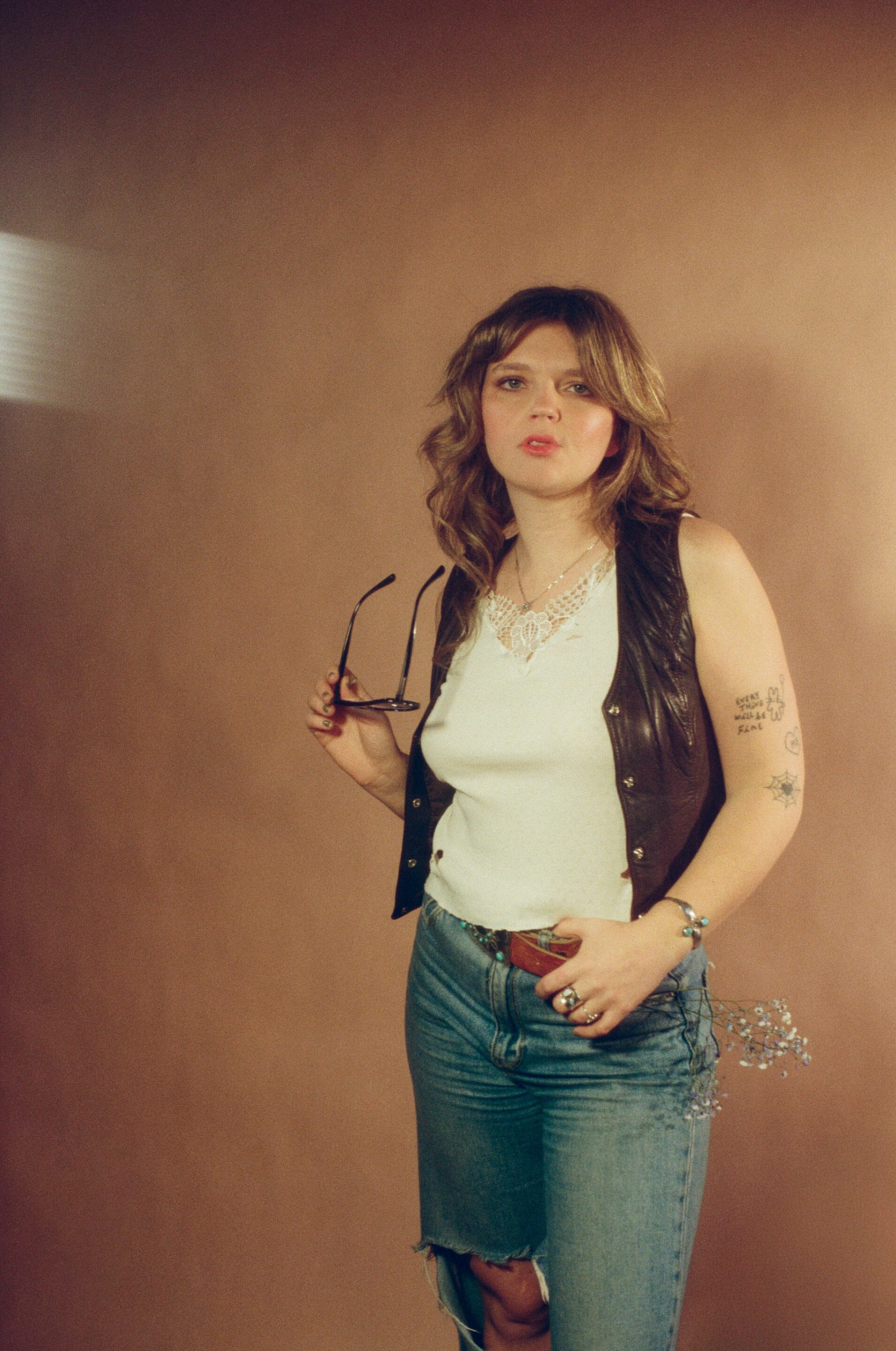
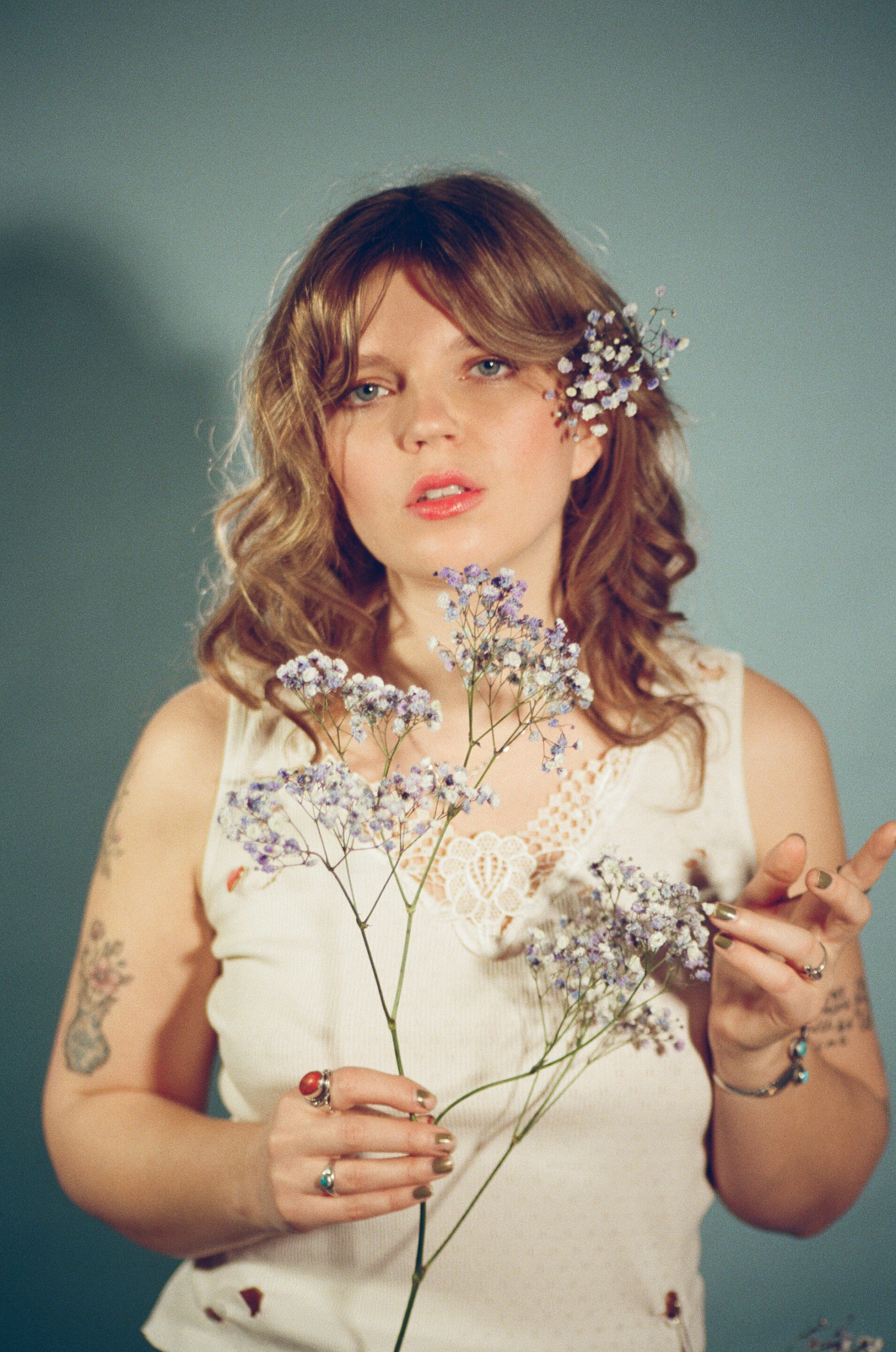
The Pages is your third record in five years. What did you want this one to say that the first two couldn’t?
I really let my personality shine in these songs. Thanks to Julian (my partner and collaborator on this album) for giving me the space and encouragement to lean into that more. I’ve never had a recording experience quite like that, where I really was able to let my light shine. Especially in the track “Amber” where at the end I’m saying “don’t dwell in negativity, radiate genuine energy” these are feelings I’ve had forever but just never put into words in a song.
I’m not afraid to be the bubbliest and happiest person in the room, even though some people are annoyed and intimidated by that. It’s just who I am, and finally I let that light shine through these songs.
“Pumpkin Pie” and “Big Star” each feel like different shades of the same diary — one intimate, one luminous. How do you decide which side of yourself to spotlight in a single?
Honestly, I don’t always decide in a calculated way. It usually comes down to what feels like the truest reflection of where I’m at.
Some songs carry this very fun, intimate and confessional energy, like “Pumpkin Pie,” where I’m almost whispering secrets into a journal, this time in a very playful way. Others, like “Big Star,” feel bigger, brighter, and more outward facing, where I’m ready to share the joy, the light, and the shine.
Both sides are me, and I think the balance keeps things real. When it comes to singles, I go with the song that feels like it has the strongest heartbeat in that moment, the one that demands to be heard first!
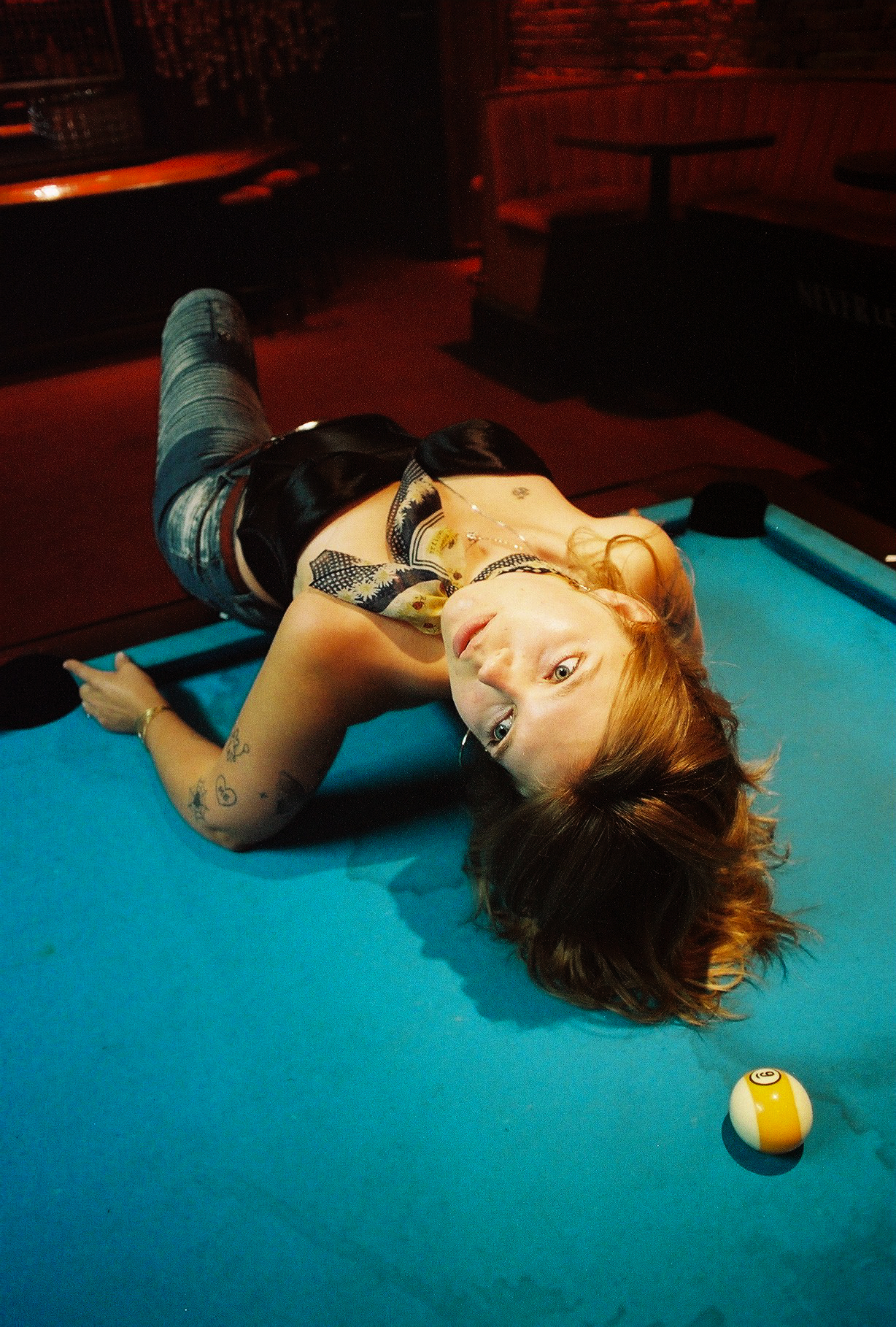
You’ve been endorsed by brands like Yamaha and Aria Guitars, but your music still feels homespun, even hand-stitched. How do you keep the industry machine from sanding down your rawness?
Ah yes, great question.
Growing up in rural British Columbia, and being surrounded by a very grassroots way of living, I think I was never jaded about the industry, basically the only parts of the industry were what I saw on TV/media. I grew up playing guitar and singing around the campfire or in living rooms with my family, pouring out amazing music, but none of it was industry standard.
In fact, all of the knowledge and connections I’ve made are just through me figuring it out, boots on the ground, going for it and meeting people as I go along. This tends to work well when you’re friendly and like to chat people’s ears off. So now, the endorsements and opportunities are starting to come, and it’s all I’ve ever wanted. So honestly, I’m beyond grateful, and I try not to get jaded about the industry not listening or paying attention, and just continue to do my own thing – all fueled by these dreams I’ve had since childhood.
You’ve called this record about turning “hardest moments into beauty.” Do you believe beauty can exist without pain, or are the two permanently intertwined for you?
Beauty and pain are always in conversation with each other.
For me, the most moving art often comes from those cracks and struggles, because that’s where transformation happens. But I don’t believe beauty needs pain to exist. There’s also beauty in simple joy, in connection, in just being present. What I’ve learned is that when pain does show up, I can choose to turn it into something meaningful, something that shines. That’s what this record is about — not glorifying struggle but showing how even the hardest chapters can grow into something radiant.
From Sheryl Crow to Fleetwood Mac, your influences carry a lineage of women and bands who reshaped mainstream rock and folk. How conscious are you of writing yourself into that lineage?
Hell ya! This is so important to me, and I want to be a part of this current movement, where women are really making their mark in music, and are dominating the industry. It’s our time to take over, I believe, and I’m so grateful and inspired by these powerhouse women that helped pave the way for us (Stevie Nicks, Joni Mitchell, Sheryl Crow, Sarah McLachlan, etc.).
Myself and some other amazing female indie artists are starting to really take off, and I know we are all constantly looking to our “fairy godmothers” if you will. Here are a few Canadian women in music that I’d love to shout out – Anna Katarina, Madelyn Read, Thea Koper, Holly Clausius, Tenise Marie, Elyse Aeryn, and Alysha Brilla.
You’ve lived and performed across Canada, Ireland, and Los Angeles. How does location shape your music — does it change the tone, or just the lens you view yourself through?
Location shapes me in different ways.
In BC, the mountains give me space to write from a place of stillness and honesty. Toronto adds grit and a bohemian edge, where people are truly living the artist life like Bob Dylan. Ireland connects me to ancient folk traditions, and Los Angeles pushes me to be bold and experimental. The songs are always me, but the tone shifts with the place, and I love carrying those pieces into my music.
The metaphor of pages suggests continuation — that the story is still being written. Looking ahead, what kind of chapter do you hope comes after this one?
Completely. The whole song is sort of like a turning of the page, wanting to write the story and know what’s next, but knowing that the best part is truly the journey and just staying present in the moment.
So right now, I’m just trying to enjoy the process, the connection, the growth and the opportunities that come my way, without forcing the movement too much, or trying to make it all happen. When you put the good energy out, and you work hard to be heard, and stay genuine, these things inevitably do happen, even if sometimes the story doesn’t play out exactly how you imagined – and that’s what inspires the best songs.

